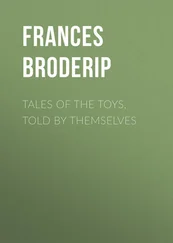Flora Steel - Tales of the Punjab - Folklore of India
Здесь есть возможность читать онлайн «Flora Steel - Tales of the Punjab - Folklore of India» — ознакомительный отрывок электронной книги совершенно бесплатно, а после прочтения отрывка купить полную версию. В некоторых случаях можно слушать аудио, скачать через торрент в формате fb2 и присутствует краткое содержание. Жанр: Сказка, Старинная литература, foreign_antique, foreign_prose, foreign_children, на английском языке. Описание произведения, (предисловие) а так же отзывы посетителей доступны на портале библиотеки ЛибКат.
- Название:Tales of the Punjab: Folklore of India
- Автор:
- Жанр:
- Год:неизвестен
- ISBN:нет данных
- Рейтинг книги:5 / 5. Голосов: 1
-
Избранное:Добавить в избранное
- Отзывы:
-
Ваша оценка:
- 100
- 1
- 2
- 3
- 4
- 5
Tales of the Punjab: Folklore of India: краткое содержание, описание и аннотация
Предлагаем к чтению аннотацию, описание, краткое содержание или предисловие (зависит от того, что написал сам автор книги «Tales of the Punjab: Folklore of India»). Если вы не нашли необходимую информацию о книге — напишите в комментариях, мы постараемся отыскать её.
Tales of the Punjab: Folklore of India — читать онлайн ознакомительный отрывок
Ниже представлен текст книги, разбитый по страницам. Система сохранения места последней прочитанной страницы, позволяет с удобством читать онлайн бесплатно книгу «Tales of the Punjab: Folklore of India», без необходимости каждый раз заново искать на чём Вы остановились. Поставьте закладку, и сможете в любой момент перейти на страницу, на которой закончили чтение.
Интервал:
Закладка:
'Not a bit of it!' cried Prince Lionheart. 'At any rate not until
I've had my dinner, for I am just desperately hungry!'
So they went to the shops, and bought all they required, laying the proper price for each thing on the counters just as if the shopkeepers had been there. Then going to the palace, which stood in the middle of the town, Prince Lionheart bade the Knifegrinder prepare the dinner, while he and his other companions took a further look at the city.
No sooner had they set off, than the Knifegrinder, going to the kitchen, began to cook the food. It sent up a savoury smell, and the Knifegrinder was just thinking how nice it would taste, when he saw a little figure beside him, clad in armour, with sword and lance, riding on a gaily-caparisoned mouse.
'Give me my dinner!' cried the mannikin, angrily shaking his lance.
' Your dinner! Come, that is a joke!' quoth the Knifegrinder, laughing.
'Give it me at once!' cried the little warrior in a louder voice, 'or
I'll hang you to the nearest pîpal tree!'
'Wah! whipper-snapper!' replied the valiant Knifegrinder, 'come a little nearer, and let me squash you between finger and thumb!'
At these words the mannikin suddenly shot up into a terribly tall demon, whereupon the Knifegrinder's courage disappeared, and, falling on his knees, he begged for mercy. But his piteous cries were of no use, for in a trice he was hung to the topmost branch of the pîpal tree.
'I'll teach 'em to cook in my kitchen!' growled the demon, as he gobbled up all the cakes and savoury stew. When he had finished every morsel he disappeared.
Now the Knifegrinder wriggled so desperately that the pîpal branch broke, and he came crashing through the tree to the ground, without much hurt beyond a great fright and a few bruises. However, he was so dreadfully alarmed that he rushed into the sleeping-room, and rolling himself up in his quilt, shook from head to foot as if he had the ague.
By and by in came Prince Lionheart and his companions, all three as hungry as hunters, crying, 'Well, jolly Knifegrinder! where's the dinner?'
Whereupon he groaned out from under his quilt, 'Don't be angry, for it's nobody's fault; only just as it was ready I got a fit of ague, and as I lay shivering and shaking a dog came in and walked off with everything.'
He was afraid that if he told the truth his companions would think him a coward for not fighting the demon.
'What a pity!' cried the Prince, 'but we must just cook some more. Here! you Blacksmith! do you prepare the dinner, while the Carpenter and I have another look at the city.'
Now, no sooner had the Blacksmith begun to sniff the savoury smell, and think how nice the cakes and stew would taste, than the little warrior appeared to him also. And he was quite as brave at first as the Knifegrinder had been, and afterwards he too fell on his knees and prayed for mercy. In fact everything happened to him as it had happened to the Knifegrinder, and when he fell from the tree he too fled into the sleeping-room, and rolling himself in his quilt began to shiver and shake; so that when Prince Lionheart and the Carpenter came back, hungry as hunters, there was no dinner.
Then the Carpenter stayed behind to cook, but he fared no better than the two others, so that when hungry Prince Lionheart returned there were three sick men, shivering and shaking under their quilts, and no dinner. Whereupon the Prince set to work to cook his food himself.
No sooner had it begun to give off a savoury smell than the tiny mouse-warrior appeared, very fierce and valiant.
'Upon my word, you are really a very pretty little fellow!' said the Prince in a patronising way; 'and what may you want?'
'Give me my dinner!' shrieked the mannikin.
'It is not your dinner, my dear sir, it is my dinner!' quoth the Prince; 'but to avoid disputes let's fight it out.'
Upon this the mouse-warrior began to stretch and grow till he became a terribly tall demon. But instead of falling on his knees and begging for mercy, the Prince only burst into a fit of laughter, and said, 'My good sir! there is a medium in all things! Just now you were ridiculously small, at present you are absurdly big; but, as you seem to be able to alter your size without much trouble, suppose for once in a way you show some spirit, and become just my size, neither less nor more; then we can settle whose dinner it really is.'
The demon could not withstand the Prince's reasoning, so he shrank to an ordinary size, and setting to work with a will, began to tilt at the Prince in fine style. But valiant Lionheart never yielded an inch, and finally, after a terrific battle, slew the demon with his sharp sword.
Then guessing at the truth he roused his three sick friends, saying with a smile, 'O ye valiant ones! arise, for I have killed the ague!'
And they got up sheepishly, and fell to praising their leader for his incomparable valour.
After this, Prince Lionheart sent messages to all the inhabitants of the town who had been driven away by the wicked demon, telling them they could return and dwell in safety, on condition of their taking the Knifegrinder as their king, and giving him their richest and most beautiful maiden as a bride.
This they did with great joy, but when the wedding was over, and Prince Lionheart prepared to set out once more on his adventures, the Knifegrinder threw himself before his master, begging to be allowed to accompany him. Prince Lionheart, however, refused the request, bidding him remain to govern his kingdom, and at the same time gave him a barley plant, bidding him tend it very carefully; since so long as it flourished he might be assured his master was alive and well. If, on the contrary, it drooped, then he might know that misfortune was at hand, and set off to help if he chose.
So the Knifegrinder king remained behind with his bride and his barley plant, but Prince Lionheart, the Blacksmith, and the Carpenter set forth on their travels.
By and by they came to another desolate city, lying deserted in the wilderness, and as before they wandered through it, wondering at the tall palaces, the empty streets, and the vacant shops where never a human being was to be seen, until the Blacksmith, suddenly recollecting, said, 'I remember now! This must be the city where the dreadful ghost lives which kills every one. We had best be off!'
'After we have had our dinners!' quoth hungry Lionheart.
So having bought all they required from a vacant shop, putting the proper price of everything on the counter, since there was no shopkeeper, they repaired to the palace, where the Blacksmith was installed as cook, whilst the others looked through the town.
No sooner had the dinner begun to give off an appetising smell than the ghost appeared in the form of an old woman, awful and forbidding, with black wrinkled skin, and feet turned backwards.
At this sight the valiant Blacksmith never stopped to parley, but fled into another room and bolted the door. Whereupon the ghost ate up the dinner in no time, and disappeared; so that when Prince Lionheart and the Carpenter returned, as hungry as hunters, there was no dinner to be found, and no Blacksmith.
Then the Prince bade the Carpenter do the cooking while he went abroad to see the town. But the Carpenter fared no better, for the ghost appeared to him also, so that he fled and locked himself up in another room.
'This is really too bad!' quoth Prince Lionheart, when he returned to find no dinner, no Blacksmith, no Carpenter. So he began to cook the food himself, and ho sooner had it given out a savoury smell than the ghost arrived; this time, however, seeing so handsome a young man before her she would not assume her own hag-like shape, but appeared instead as a beautiful young woman.
Читать дальшеИнтервал:
Закладка:
Похожие книги на «Tales of the Punjab: Folklore of India»
Представляем Вашему вниманию похожие книги на «Tales of the Punjab: Folklore of India» списком для выбора. Мы отобрали схожую по названию и смыслу литературу в надежде предоставить читателям больше вариантов отыскать новые, интересные, ещё непрочитанные произведения.
Обсуждение, отзывы о книге «Tales of the Punjab: Folklore of India» и просто собственные мнения читателей. Оставьте ваши комментарии, напишите, что Вы думаете о произведении, его смысле или главных героях. Укажите что конкретно понравилось, а что нет, и почему Вы так считаете.












